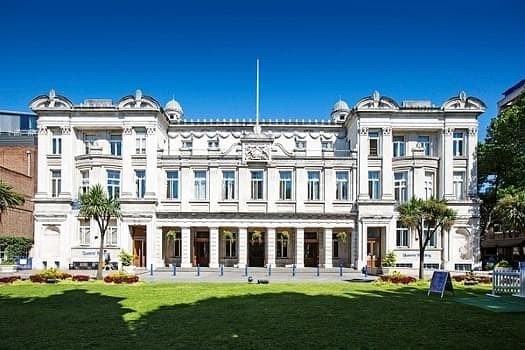Our Theatre and Performance MA programme encourages you to explore your own ideas in depth and build a body of original, thought-provoking work. A key benefit of the programme is its flexibility: across compulsory and optional modules, you can develop your interests in both theoretical and practical projects to advance your career.
We balance rigorous theoretical and historical exploration with experimental performance practice. You will work with our internationally respected academic staff and attend lectures, workshops, and mentoring sessions with visiting artists throughout your studies, building your professional network in the process. In recent years our MA has hosted a wide range of high-profile artists, including Stacy Makishi, Peggy Shaw and Manuel Vason among others.
You will also see the latest in contemporary theatre, from warehouse raves to productions at international institutions like the Old Vic.
If you want to develop your experience in the cultural industries, the Department can offer you a placement at one of our partner organisations.
You will be an important part of academic life in the Department: our postgraduate students' work directly benefits from, and contributes to, our world-class scholarly and artistic reputation.
Structure
- Four assessed modules
- A 12,000-15,000-word dissertation or practice-based dissertation
DRA7011: Culture, Ethics, Politics
This module explores urgent socio-political and aesthetic issues in contemporary theatre and performance through a focus on material and cultural conditions of production and reception. Drawing on London’s rich performance resources but also looking globally, it examines what is urgent in contemporary theatre and performance and how theatre and performance scholarship can help us understand contemporary cultures and cultural debates. You will explore a range of issues related to, for example, decolonisation, ethics, bodies, gender, sexuality, finance, spaces, institutions, labour, feelings, and spectatorship. You will consider issues of social power, representation, and social change.
DRA7012: Body, Action, Documentation
This module explores approaches to making performance which centre on the politics of the body in performance. Through weekly workshops, the group will be introduced to a range of performance-making techniques, and will be encouraged to devise their own methodologies for creating performance languages. The module will draw on methodologies from live art and experimental performance, using improvisation, action and task-based performance, autobiographical approaches, and score making to develop creative and critical strategies for exploring bodies, identity, and politics.
DRA7013: Performance, Activism, Social Justice
This module explores how performance contributes to social justice, especially through activism. It examines: activist movements, such as Black Lives Matter, Extinction Rebellion, and activism for indigenous rights; activist practices and actions, spanning pacifism and violence, and including occupations, events like carnivals, and performances such as verbatim theatre; and intersecting theories of activism, social justice, and performance, such as Boal’s Poetics of the Oppressed, Judith Butler’s theory of assembly, and Christina Sharpe’s theory of the wake, drawing on wider literatures in, for example, critical race theory, environmental humanities, queer theory, law, and disability rights.
This module explores through practice the relation between text, self, and performance, in order to investigate critically the way performance may articulate individual experience, to invoke or confirm aspects of collective identity, and to complicate the assumed relations between performances and texts. Through weekly practical workshops and contextual research, you will explore forms, methodologies and topics including (for example): writing for solo performance, live art, verbatim and documentary theatre, improvisation, protest performance, and oral histories.


